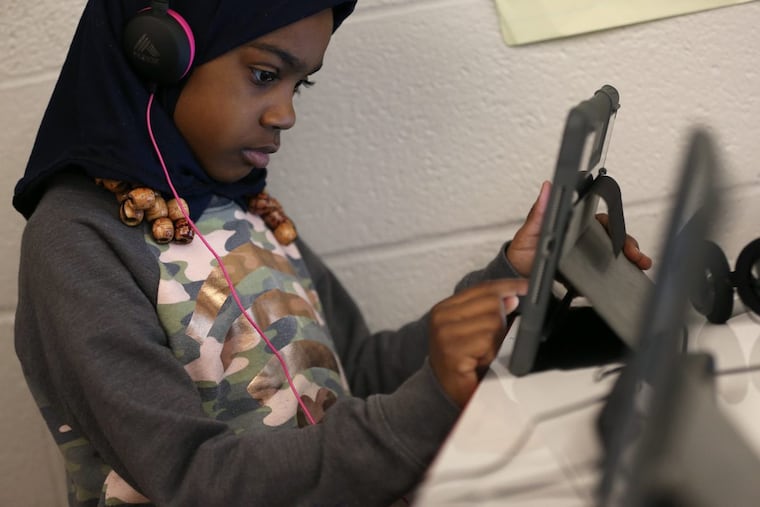Modern teachers shouldn't waste time lecturing students | Opinion
Trading lectures for drones prepares today's students for tomorrow's workplace.

Ask students what year Columbus sailed the ocean blue and they'll likely respond with "1492!"
Schools have been drilling such facts into children's brains since the dawn of public education. In past decades, long lectures and rote learning were necessary evils. Information had to flow in one direction only — from all-knowing teachers to students — because there was no practical way for students to teach themselves.
Modern technology has irrevocably disrupted that flow of knowledge. The digital revolution has made it necessary to reorganize the classroom and radically alter the student-teacher dynamic.
Say a teacher is introducing her class to the solar system. Today, students can instantly Google any facts they'd need to know about the planets. They can even create their own solar system models on NASA.gov. In the near future, students might even break up into teams and embark on space exploration missions, thanks to virtual-reality headsets.
In other words, information now flows not just from teachers to students, but also from the web to students, students to students, and even students to teachers. In fact, more than 90 percent of U.S. school districts currently have quality internet access.
Given the new digital landscape, a half-hour lecture on the solar system can be a waste of time. According to a study by the National Training Laboratories, students retain only about 5 percent of information when it's presented in lecture format, but 70 percent when they practice a skill themselves, and 80 percent when they explain the material to others.
Lecturing also fails to impart the knowledge and skills students will need in their future careers.
Today's students are tomorrow's workers. And they're ill-served by educators who cling to an outdated, top-down teaching approach.
Prepping students for the modern workforce means coaching them on how to analyze material and approach topics in unconventional ways. Nearly 90 percent of executives report trouble finding workers with soft skills like critical thinking and creativity.
The digital age both enables and requires skills-based learning. For example, rather than reading off of slides about greenhouse gases, one school in Maine asked students to create video news segments about how different fossil fuels affect climate change. Their teacher recognized that students could Google a list of greenhouse gases in a few seconds — and decided to use technology to help them think critically instead.
Or consider Little Rock Central High School, which became one of the first integrated public schools during the civil rights movement. Students are developing an app to take visitors on a walking tour of the path that the first black students trod on their first day of school. In addition to learning history, the kids learn to fly a remote camera drone to gather GPS data and aerial footage.
At schools that focus on such real-world problem-solving, students are more likely to attend four-year colleges. They also boast better test scores. When education consultants at MIDA Learning Technologies analyzed standardized test scores in one Illinois school district, they found that fifth graders in classrooms that focused on real-world skills outperformed their peers by nearly 40 percent.
Today, classroom knowledge no longer flows in one direction. Students have access to countless digital sources of information — often just a click or tap away.
That's why modern teachers shouldn't waste time preaching to kids. They're better off introducing their students to the tech tools that will help them solve the challenges of tomorrow.
Siri Fiske is the founder and head of Mysa School in Washington.